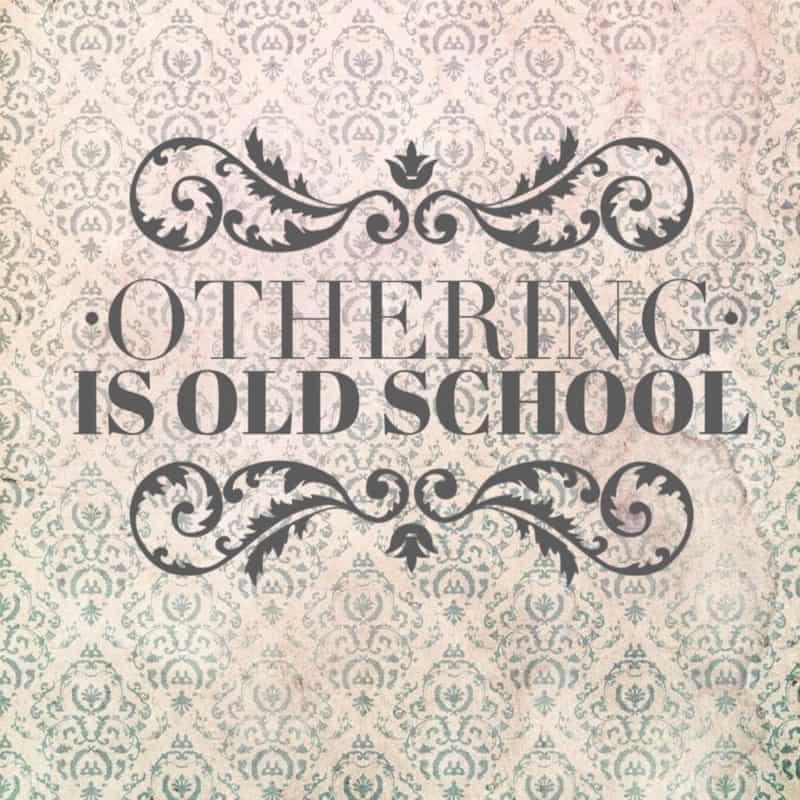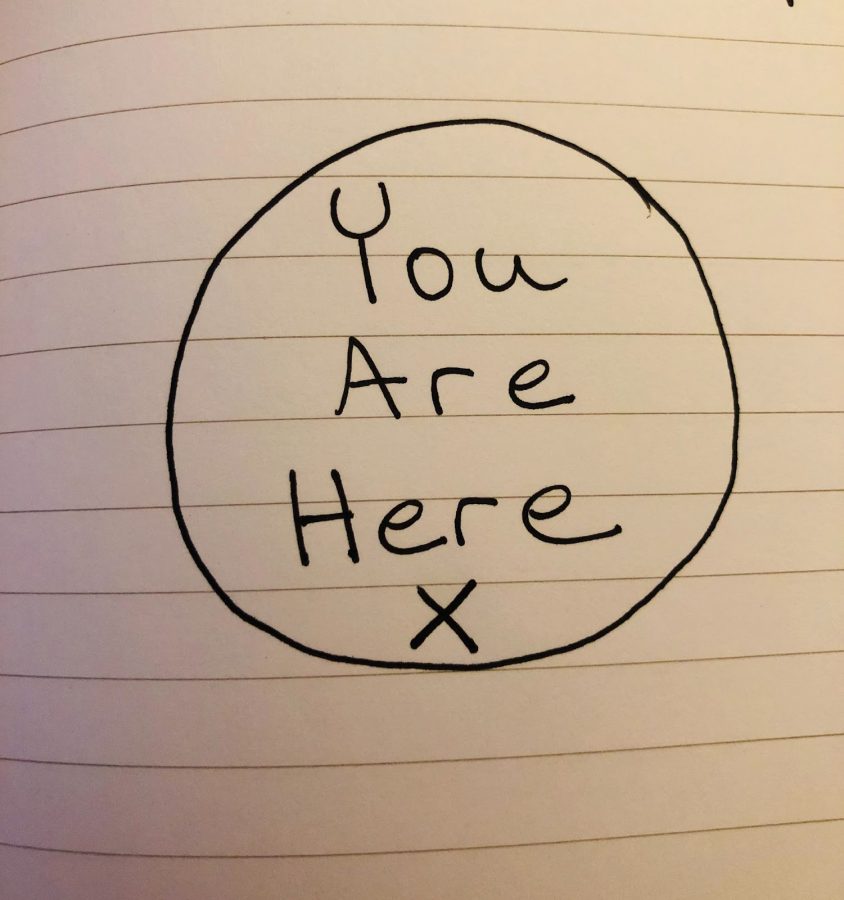An anti-harassment movement is needed in permaculture, here’s why.
By Karryn Olson

EDIT 4/10/20: After you read this article, consider also reading “What’s a Regenerative Approach to Ending Sexual Harassment?” and accessing a draft compilation of topics and resources. Thoughtful contributions also welcome.
The past few weeks have been flooded with the news about Harvey Weinstein sexually harassing women he worked with. And millions of women have come forward to tell their stories of sexual harassment and sexual violence with the hashtag #metoo.
Clearly, the implementation and enforcement of anti-harassment policies is overdue in the world. This is also true in permaculture. Here’s why.
In a community that prides itself on decentralized governance, vital topics are not getting addressed.
I wrote “A Pattern Language for Women in Permaculture” which was published in the “Permaculture Activist” magazine in August of 2013.
I was interviewing women about their livelihoods, but in the process of publishing that article, and in hearing from others who reached out to me afterward, I heard stories of decades of sexual harassment — and yes, even other forms of sexual violence — in permaculture circles. I also heard from men and women who tried to address this issue, and either were at a loss about what to do, burned out, or were shut down.
As these accounts were shared, I came to see that I had been entrusted a “book” of stories — herstories — and that came with responsibilities. I asked the women what they’d like me to do with this, and they said some version of “help make sure this doesn’t happen to other women.”
Since I had agreed to write an article about women in permaculture, I couldn’t focus on this one theme, so I proposed a “Pattern Language” that supports women’s leadership and focuses on solutions.
I pointedly included “Be An Ally” as pattern #8. (Since then, some folks have pointed out that the word “ally” can be an anemic way to avoid taking real responsibility to change things. One suggested instead: “Be a Friend” — would you want your friend to have to deal with this?)
I also consulted with other women about many topics, including harassment, at women’s regional gatherings, and in a working group at the 2014 North American Permaculture Convergence (NAPC), where I invited women to co-evolve the “Pattern Language for Women in Permaculture.”
We shared the following in my report to the NAPC:
…this working group felt very strongly that it is imperative for all permaculture entities to draft, implement and enforce anti-sexual harassment policies. The consensus was that men in permaculture should be very active in these policy development and enforcement efforts. Another clear directive was that policies should be based on a “100% responsiveness” approach that ensures safety and respect for all parties involved.
That call was reiterated in my subsequent 2015 article entitled “Best Practices to Support Women in Permaculture” that was published in the Permaculture Design Magazine.
I later facilitated groups in Women’s Gatherings that dealt specifically with the issue of harassment. We framed draft anti-harassment policy, which was stewarded through several iterations over a few years. It is included below, and you will see, it is a loving call to community-building.
The women present felt that this policy should be issued from a wider constituency — partly because we wanted to invite men to participate in the immense amounts of emotional labor that this work requires, and also because doing this work comes with the very real possibility of exposing one’s self to trolls and threats.
After investing dozens of unpaid hours in this work, and wishing to avoid the stress of bringing forward the call on my own, I made a few attempts to hand this topic off to various permaculture organizations and events over a few years.
Besides circulating the request, not much has happened.
I’m not saying this to blame anyone.
The people in those organizations are usually volunteers working huge hours, also completely unpaid, to provide ways for the permaculture community to come together. The male allies I work with are also engaged in multiple arenas working for social justice in permaculture and in the wider world. There’s only so much time and energy to go around, and I’m grateful for the work everyone is doing.
What I am saying is this:
Due to the decentralized nature of the permaculture movement, nobody is getting paid as a Human Resources professional to teach anti-discrimination trainings that other organizations routinely provide (sexual harassment is only ONE of the behaviors that poison the workplace or movements), and ensure organizations are in legal compliance with the law.
The permaculture community needs to grapple with the fact that the decentralized community we have designed makes it very easy for “hot button” issues to slip off the meeting table, because they are essential “hot potatoes” that are hard to want to take ownership of, because it takes a HUGE AMOUNT of unpaid work to steward such policy, especially in an effective and community-building way.
The question for the permaculture movement then, is: Who ends up doing this unpaid work? Isn’t it pretty awful that the people who have the burning desire to address harassment are all-too-often the women who have #metoo stories?
So, thank you to the women who embraced the risk to come forward to talk about Harvey Weinstein and other experiences of sexual harassment; thank you to all the women who flooded social media with their stories; thank you to women who refused to post their #metoo stories; thank you to the men who are aiming to hear the stories and be part of the solution; thank you to people using our permaculture design skills toward a world where sexual harassment and sexual violence statistics move to zero.
Thank you to the International Permaculture Convergence in India happening Nov 25 – Dec 2, 2017, that has a track called “Women as Agents of Change.”
Because now is the perfect time to place this “book of herstories” front and center in the permaculture community.
I’ve been warned that by writing this, I may get trolled. How ironic! Getting harassed about putting forth the call for anti-harassment policy. Yeah, that sucks. But those fears are what keep women silent, and to hell with that.
In reality, it’s not just me, there’s a mountain of folks behind this, and you can show you resonate by “clapping” for this article, commenting, and sharing it further.
So on here’s the call:
If you are a man who is attending the IPC in India this month, you are invited to leverage your male privilege by stewarding conversations to evolve, implement and enforce anti-harassment policies.
Start this work at the international level, and then take it home to your regions and local communities.
And if you aren’t going to the IPC, work on this close to home to make sure your communities understand not only how to avoid harassment, but also how to build inclusive communities towards collective liberation.
Yes, this will be an investment of unpaid time and emotional labor. Welcome to the reality of women around the world.
You are also invited to cultivate and hone social permaculture skills to navigate the intersectional realities of this issue:
To make visible your efforts, enter your name in the comments box below, and the venue(s) and dates in which you will be stewarding this conversation.
Thank you. You will have support.
By the way, a TON of the work has already been done, by women.
For example, read the draft language below. Like I said, it is purposely framed as a “call in” to community. Nobody I’ve met is on a “witch hunt” (although that term is BS).
For those of you that are worried about how you will address this issue in Permaculture Design Courses, etc. Starhawk and her team at the Earth Activist Trainings (EAT) have already shared their wisdom with me on this when I wrote the Pattern Language article. It bears repeating here:
“Sexual harassment is handled badly in two ways: when we ignore it, and when we communicate policies in a way that is too heavy handed,” according to Starhawk. EAT has a policy against teachers getting romantically involved with students during courses. They also set a tone early in the course by discussing healthy boundaries with students, like “no means no, and yes means yes.” They also invite people who can function as allies to self-identify. This creates safe space, clarifies expectations, and builds community.
At the Finger Lakes Permaculture Institute, our mixed gender team has also had good success with this using this approach. We also drafted policy and procedures as part of our risk management for as an organization, and made it a practice to communicate standards early in our courses.
Perhaps you are also already working on this? Great! Share that info, because anti-harassment policies need to be visible to be effective.
If you have other insights into what works to create an inclusive, harassment-free atmosphere for all, please share your experiences, and devise ways of sharing best practices.
And guys, you are also invited to intercept and interrupt all the haters that are going to come out of the woodwork after I press “publish”.
In service to building Beloved Community,
Karryn

Preface:
The original draft statement was revised below so that it is more general, and it doesn’t include information that was
1. verbally requested: more transgender-inclusive language — done very rudimentarily with the asterisk — but could be much better with language input from the LGBTQ+ community.
2. The very few comments that were written on paper versions of this document, which I can’t access right now. I feel comfortable forwarding this mainly because it is a draft draft draft, meant to be used to invite conversation and reflection, and that folks will be getting other chances to give input.
3. The action items were more detailed and had names attached. I’ve made them more general and took out the identifying info in case of backlash.
Obviously, a process for this work needs to be created at local, regional, national and international level.
The Draft Language
Womxn* in Permaculture and their Allies, issue a request and strong recommendation to create dedicated space, time and resources [at upcoming NAPC / IPCs, etc] to draft policies to prevent sexual harassment within permaculture, and to strategize for implementation of these policies and protocols.
*NOTE: this spelling of “women” aims to be inclusive of all gender-queer & trans-folk
Notes:
Use the permaculture ethics and People Care as framework for the language of this proposal. People Care necessarily includes the respect of human rights, and enabling each human to live up to her/his fullest potential. Not only does sexual harassment hamper women from reaching their fullest potential in permaculture, we also acknowledge that such oppressive behavior harms the person acting out the behavior, as well as our larger community. We have heard stories of women leaving the permaculture community because of sexual harassment — whether it happened to them directly or because they felt the fallout from it.
Instead of “calling people OUT” and/or communicating anti-harassment policies in ways make people feel “under the microscope” or “bad” or perpetuate toxic blaming approaches, we advise use of language that creates a culture of “calling IN a regenerative future.” This approach can facilitate wide participation in the creation and implementation of these policies. At the same time, most sexual harassment happens from men towards women, thus we invite men to take a central and leading role in the effort to develop these policies and foster this conversation. We see this as a way that men can practice allyship toward robust and myriad approaches to creating inclusive culture. We call them with love, compassion and respect INto the circle.
We further acknowledge a systems approach — whereas sexual harassment has and will continue to fracture relationships and the permaculture community (essentially a vicious reinforcing feedback loop) we believe that open and productive conversations around this issue can provide an enriching forum that can serve as a virtuous amplifying feedback loop that can increase feeling of safety & solidarity through personal and community growth.
We acknowledge that this issue can be uncomfortable, so that careful design is necessary before publicizing or designing an event in which this topic is addressed.
We would like to see a Code of Ethics for Teachers, Designers & Organizations drafted and put forth to the wider communities for voluntary adoption. For example, it would clearly state the teachers agree to not become romantically involved with students while they are in their courses.
The following suggested action items support this request:
1. Asking local, regional, & national organizations to take this “live.”
A. So that no one person or small group need to deal with possible backlash (as evidenced in the reactions to the “Spermaculture” article).
B. We believe the request should come from a leadership group comprised of both women and men, to counteract the fallacy that this topic is an issue that women should deal with. Male allies are especially invited to help move this forward.
2. Inquire if there exist resources (templates, skilled facilitators) in local or regional permaculture groups that can support us in drafting these policies.
3. Can we identify skilled trainers in harassment prevention, who can help facilitate conversations and policy development?
4. Do regional and national organizing or accrediting organizations already have existing policies on the books? If yes, what are they? Is the policy being communicated in your organizations? How? To whom? If no, how can this be addressed?
5. At the basest level, this is a risk management issue for organizations that could be found lacking if legal action were to be taken due to harassment.
This Sexual Harassment Prevention Made Simple video is a useful basic resource.



